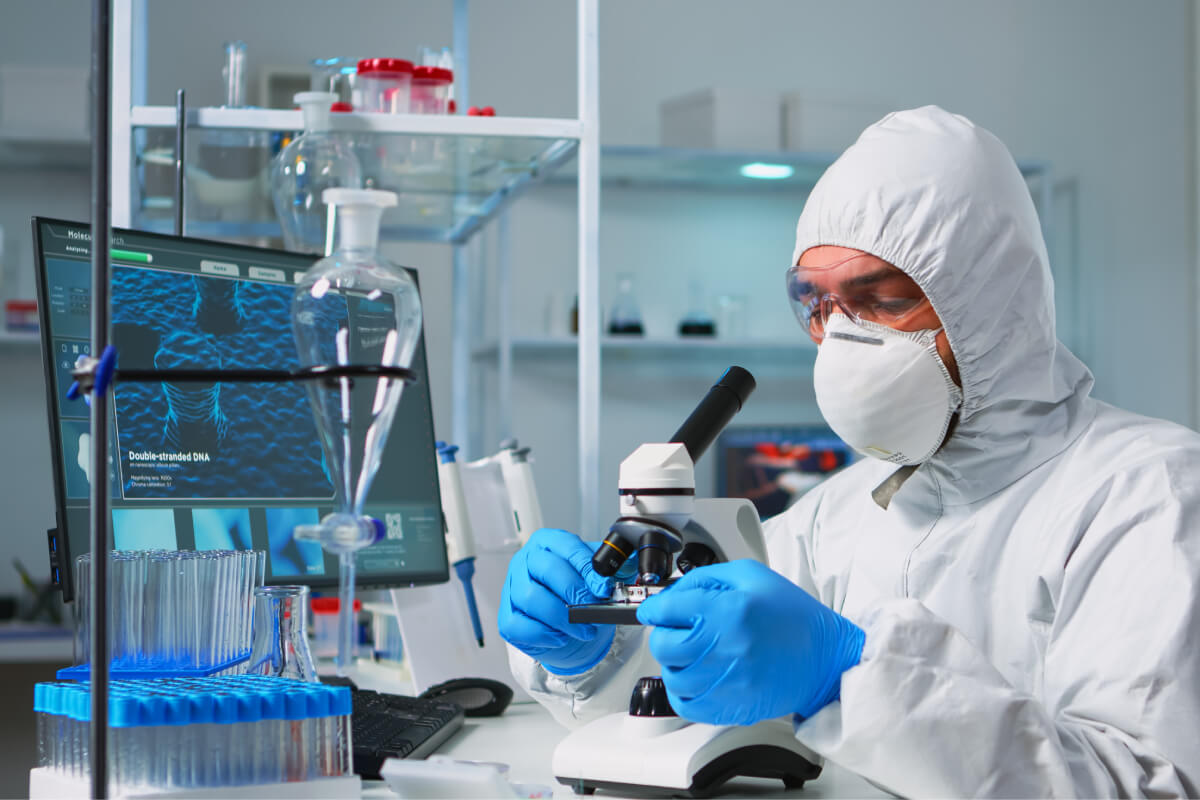Importance of Whole Genome Sequencing
The Benefits of Whole Genome Sequencing
Have you ever wondered what your exact ethnicity is? Or whether you’re at risk of developing certain diseases later on in life? Perhaps you’re interested in determining whether you carry genetic data that could affect your future children’s health?
Until a few years ago, the mere thought of having access to this information seemed like science fiction. But thanks to the advent of fast and effective DNA sequencing technologies, anyone can have their DNA sequenced in a matter of weeks.
Through genetic testing, you’ll be able to learn a great deal of information about yourself and even your past and future family members.
Why Is the Genome Important
Proteins carry out thousands of different processes in the human body, and certain genetic variants can lead to defects in specific proteins, causing genetic conditions. These coding portions of your DNA are called exons, and the entirety of your exons make up your exome.
But even the portions of your DNA that are “non-coding” help regulate DNA transcription processes. Therefore, it shouldn’t come as a surprise to learn that sequencing your entire genome can provide troves of information.
What Whole Genome Sequencing (WGS) Tells You
WGS and other types of DNA sequencing can be used for different purposes, from discovering your exact ancestry to assessing various health risks. WGS has become an important aid in the design and implementation of public health initiatives. Continue reading for what can whole genome sequencing detect.
Use Your Genome For Health

The clinical utility of WGS lies in its ability to provide information regarding your present and future health. In fact, DNA sequencing is widely considered to be the future of personalised medicine. As more and more people get their DNA sequenced, healthcare professionals will be able to use their genomic data to provide care tailored to a person’s needs, health risks, and lifestyle.
WGS can be used to measure your predisposition to develop certain preventable diseases — such as high blood pressure and diabetes —which will allow you to take preventative measures. It can also identify genetic variants that can directly affect your health , even if you’re asymptomatic at the time of the test.
Your DNA sequence can also be analysed to assess whether you carry genetic mutations that may cause rare diseases in your offspring. DNA testing can identify many Mendelian diseases, which are genetic diseases caused by alterations or abnormal rearrangements in a specific gene or chromosome. Considering that rare diseases affect more than 350 million people globally, it’s easy to see why early detection is so important for prenatal care and newborn health.
WGS can be used for prenatal or preconception genetic testing, especially when parents have a family history of genetic disorders. Genomic sequencing can be a helpful tool for those trying to conceive and hope for a healthy baby. Additionally, using WGS for genetic testing during pregnancy is less invasive than other types of traditional prenatal tests.
Genomic medicine can even be used to determine medication side effects. Pharmacogenomics is a field of genetic testing that studies the different ways in which your DNA (genotype) can affect your response to medications. Pharmacogenomics can be used to adjust medication dosing or choose between different therapeutic options.
Use Your Genome For Ancestry

There are many reasons why someone would want to discover their exact genetic ancestry. For some, it’s a way to learn more about family members they may not have been able to meet personally. For others, it can shine a light on possible health risks linked to ethnicity and race.
WGS will compare your genetic markers to the sequencing data found in specific ethnic populations to determine exactly where your ancestry comes from. Different types of genetic testing can be used to make sure that your genetic genealogy is as thorough as possible.
Explore Your Genome Data For Self Discovery

The combination of the different types of data provided by your genome sequence will tell you more about yourself than you ever knew before. Your genome determines your phenotype — the composite of all characteristics that can be observed in an individual. In addition to being used for medical or ancestry purposes, WGS reveals extensive information regarding many other areas of your life and body, from your diet to your daily habits.
Whole genome sequencing can even be used to assess your lifestyle and wellness through the use of nutrition genomics (also known as nutrigenomics), which studies the correlation between food and the genome and even fitness genetics.
Pros and Cons of Genome Sequencing
- WGS is a safe procedure; samples can be collected at home in many cases.
- WGS provides individuals with the health information needed to make lifestyle modifications.
- WGS can be helpful for family planning and prospective parents, especially those with a family history of genetic diseases who dream of having a healthy child.
- Genome sequence data can be used to understand specific communities better and promote public health initiatives tailored to their needs.
- Medical genetics and pharmacogenomics can lead to more accurate diagnoses and effective treatments while reducing the burden placed on healthcare systems.
- Genetic genealogy data helps individuals discover their exact genetic ancestry for personal or medical purposes.
- It is necessary for genome analysis results to be analysed by a specialist to ensure a clear and accurate understanding of their meaning.
- WGS data can reveal genetic variations of uncertain significance that may not cause any health issues. If the results aren’t reviewed by a specialist, the presence of these variants could cause undue stress and anxiety.




